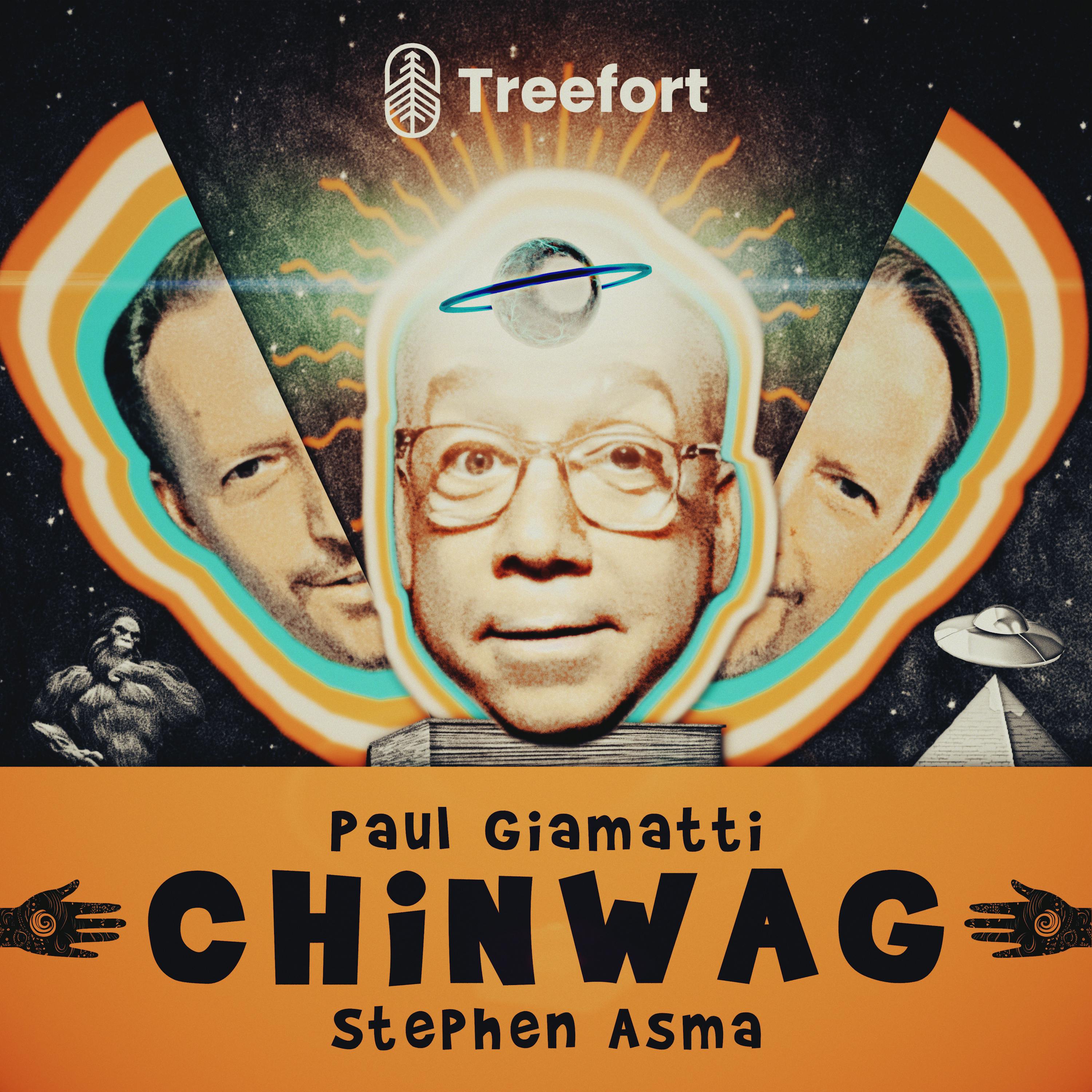
Bill Monty's Guide For Getting Older
Discover essential insights on navigating life's milestones with Bill Monty's Guide for Getting Older, the ultimate podcast for individuals of all ages embarking on the journey of aging. Host Bill Monty leads engaging discussions on vital topics such as Medicare, Social Security, retirement planning, finances, and beyond, ensuring you're well-equipped for every stage of life.
Tune in to our informative and lively format, where we seamlessly blend practical advice with current events and lifestyle options. Getting older has never been more enjoyable! Join us on this empowering journey as we navigate the path to aging together.
For questions or comments, reach out to us at Billmonty04@gmail.com or leave a message at 754-800-3170.
https://monty73162.wixsite.com/gettingolder/tales-from-south-florida
Bill Monty's Guide For Getting Older
Assistance at Home for Seniors
The Podcast for Young People Who Have Lived a Long Time.
Discover the secrets to flourishing as the years add up! Join me, Bill Monty, on a heartwarming journey where we explore the art of aging with glee and purpose. In each episode, I dive into the adventure and beauty of life's latter chapters. Remember, your golden years are not just about counting time, but making every second worthwhile.
In this episode, I peel back the curtain on a resource more precious than gold for anyone approaching or living in the golden years. Whether facing food insecurity or needing help at home, there are beacons of support out there for you, offering guidance without the weight of sales pressure—because when it comes to aging, the right kind of help can mean the difference between independence and reliance. Finally, I leave you with a chuckle over the idiosyncrasies of getting older, and a gentle nudge to choose kindness every step of the way. Because ultimately, while the years may fly by, they’re destined to be rich with joy and meaning.
Remember to LIKE, COMMENT, SHARE, SUBSCRIBE/RATE. 😘
Have a question or comment? Leave a Message:
https://www.speakpipe.com/GuideforGettingOlder
You or your idea might be on the next episode!
Be sure to listen to Tales From South Florida, the podcast about life in the Sunshine State. Tales From South Florida - Jimmy Buffett, South Florida Playlist, Podcast
Email me at Billmonty04@gmail.com
Visit our website: Home (monty73162.wixsite.com)
You can also listen to us and find other resources for Baby Boomers at BabyBoomer.org: Ultimate Boomer Community, News, Podcasts & More!
Information presented in the following program is for entertainment purposes only and should not be taken as a statement of fact. Hello and welcome to Bill Monty's Guide for Getting Older. I am your host. As you may have guessed, I'm Bill Monty, and this is the podcast for young people who have been alive a very long time. So let's be clear right up front on a couple of things.
Speaker 1:This show is not about being old. It's about getting older, and we're doing that, all of us, every single day. Think about it You're older today than you were yesterday. That's the way life works, right. So this is what this show is all about. This is not about being old. This is not about sitting around waiting for the grim reaper. This is about living life, and this show is about providing you information and resources to help you age gracefully and independently and to prepare for when you do get older. Those are the things that we talk about.
Speaker 1:You know, I remember back in the 70s there was this Canadian band called Trooper. I don't know if you've ever heard of them or not, but they had a song called we're here for a Good Time, not a Long Time. Every now and then I still play that, so you might want to pull that up on Spotify or Pandora, whatever you get your music from. If you're streaming music and listen to, we're here for a Good Time, not a Long Time, which brings us to today's senior moment. Now, I know senior moments generally mean you've forgotten something. When I say senior moment, I want us to remember something we are not here for a long time, but we are here for a good time. So if you feel like you are living against the wind, it can feel like a life sentence. Life should not feel like a chore. It should feel like an adventure. Don't let life get you down. Find time to make it an adventure again. Go to the beach, go for that drive, go to the picnic. Get involved with your community Volunteer, get involved with, maybe, local schools or your religious institution. Take an online class. You're never too old to learn something and do something new. Hey, you know what this particular older person did when he needed a hobby and he wanted to get back into life and have it be an adventure. He started podcast called bill monte's guide for getting older. I didn't know anything about podcasting when I started all of this and I'm still learning along the way, but that's what makes it fun. I feel like I'm also helping and contributing and giving something back to everyone. So if you're listening here, I hope that you get something from this.
Speaker 1:Now, one of the things that we want to talk about today specifically is assistance that you might need as you get older or maybe a family member needs. I find so often that people don't know where to go or where to turn to when they need help, and they often wait until it's too late and now they're in a panic situation. I need help tomorrow. I need help today. So I think the first bit of advice I would give to you would be understand that help is not 24 hours away in most cases or most situations. Now, this all depends on how you are set financially. Of course, if you have all the money in the world, then I'm betting you're going to get help a lot quicker, but I don't believe most people are in that situation.
Speaker 1:I wish I had the paper in front of me. I was reading some statistics yesterday on the amount of people 59 years of age and older who have no retirement savings of any kind, so they're not ready. When something financially happens, when a pandemic occurs or when there's one illness suddenly they can be just wiped out. I know, if you're 25 years old, being 62 sounds really old, because when I was 25, I thought 62 was really old, but it's not when you're 62. These days you can live another 20, 25 years. So you need to be ready and you need to be prepared.
Speaker 1:Where can you go? And we might not be talking about something as serious as Alzheimer's disease or other forms of dementia, but let's just say you, just you find yourself in a situation, or you know of someone who's in a situation, or you know of someone who's in a situation where they're having trouble taking care of themselves with some of the basic things in life that we take for granted when we're younger. I'm talking about things like being able to effectively clean your house or to prepare a meal and be able to eat it. I'm talking about companionship and knowing where to go to find companions. One of the things about getting older is that that circle of friends you had when you were younger they tend to go away. Luckily, these days we can connect through social media, but that's not the same as having that person you can go out to dinner with, and usually it's not anyone's fault, it's that people. Either they move away or perhaps they pass away.
Speaker 1:This became a huge problem right after COVID. A lot of seniors lost the ability to keep that circle of friends that kept them going, and so isolation became a real issue and a real problem. But there are two programs I want you to know about that. The funding comes from a local level and they can provide some help for you. So I did some research on the website. Some of this I'll be pulling from that. The first is called LSP or local services programs.
Speaker 1:Local services programs. They're not so much as a formal program, as a collection of services, but because they vary by location and with available funding, the possible support alone. So keep this in mind the possible support alone will likely not be enough to help an elderly individual live independently, but when combined with other assistance programs, these long-term care services can make a significant difference. So for LSP, let's talk about the financial requirements. Income is not considered an eligibility factor for LSP programs, but it may be considered when prioritizing who is provided assistance. So what does that mean exactly? It means they're not going to. It's not going to be so much. You can be turned down because you make too much money, but you might get put on a wait list because there might be someone more in need, financially, physically. Whatever the case might be, that's going to go ahead of you. So this goes back to what I said. Don't think the help is going to be just 24 hours away. The list of services we're going to talk about next are part of the LSP programs. Again, they vary by where you live. Keep that in mind, and it's unlikely that every single county is going to present all of these services.
Speaker 1:One of the first, let's say someone is having trouble with meals. There's congregate meals programs. Congregate meals programs are where you can go to get a meal if you need it. You can't be homebound. That's a whole different program. It's called home-delivered meals. Congregate meals is you go to a physical site like an adult daycare or a senior center. A senior center is probably a better description of it. You go to a senior center and you can get a meal there. You do have to do an assessment, no-transcript the assistance, but once you get that, you can go there daily for a meal and you have a chance to socialize too. So if socialization is an issue, then this is a great program for you.
Speaker 1:Wellness education, so health and wellness classes can be offered. Counseling, if you need it is offered through LSP Personal emergency alert response systems. So that's the thing that you wear. You know I've fallen and I can't get up. They can be provided to you. Home-delivered meals, which we mentioned before, are available if you are homebound and there's a different set of criteria. Usually they have to come out and do the assessment at your home and look at what your situation is. Non-medical transportation, caregiver trainings If someone is helping to take care of a young person who's been alive a very long time, they might need support. They might need training. If you have lived your entire life not providing essential medical services to someone and then suddenly you're put in that role, you need support and you need help. You need training. That's available through this Talked about case management, where you have a case manager who comes out and does the evaluation or the assessment and they look at what you need and then can go back to the agencies and say, okay, here's what they need.
Speaker 1:What can we get them? Will this be waitlist or can we get them immediate help? So the case manager is really your friend. No-transcript, and understand that sometimes people are under the impression that if they just make a phone call somewhere that someone's going to come out and come clean their house early and they're going to repair everything and they're going to fix their roof, that is not the way these programs work. So you need to understand exactly what comes along with something called homemaker or chore services. These are some, not all. Some, and again they may vary by where you live. These are some, not all. Some, and again they may vary by where you live.
Speaker 1:Someone can come out and plan and prepare your meals, including special diet needs, help clean up after meals, wash the dishes and other kitchen utensils, clean kitchen counters, cupboards, appliances, clean the bathrooms, the fixtures, make the beds, change sheets, tidy and dust the home, iron and mend clothes, wash clothes, take out the trash shop for essentials. There are people that do this Now maybe not one service does all of those things. So, again, that's where that case manager comes in handy. Really, really, you're going to need that guidance that the case manager will provide. In-home respite care is where someone is coming in. You might know them as an aid a house aid, a home aid and they come in and they're really more medical. They're going to do medication management, making sure that medication is taken on time. All of this also provides someone who cares, someone who's there for companionship, a little bit bit of socialization. But you know we're talking about someone who might only be contracted to come out for maybe four hours a week, so that might be four days a week for one hour, two days for two hours. You got to have a plan for something else. This is not going to cover everything that you need, but it is help. There is help out there. So that's the LSP program.
Speaker 1:There's also another program called Community Care for the Elderly and that provides assistance to seniors who are at risk for nursing home placement. So a little bit more serious situation than the category we just talked about there. The goal of this program is to enable qualified seniors who require medical and or personal care to remain living at home or in the community instead of receiving care in a more expensive Medicaid-funded nursing home residence. To be eligible, individuals must be a resident of the state that they're in and be at least 60 years of age. For CCE there are some functional requirements also. An individual must have a functional impairment with which they need assistance, and this includes ADLs or activities of daily living such as bathing, grooming, mobility and toileting. This need for assistance is determined by, again, an assessment during the application process and then a reassessment on an annual basis. There's no income limit for CCE, but if the person in need, the senior, is eligible for Medicaid, they are not eligible for CCE. Also, with CCE there's a copayment Program. Participants are required to pay a copayment for the services they receive. Copayments are based on a sliding scale that's generally 1 to 3 percent of the seniors income. There are provisions in place that prioritize this program for individuals who have been or are suspected of being victims of financial, psychological or physical elder abuse. Some of the services are duplicate of local services programs. The LSPs. Adult daycare and adult day health care is one that's there now. Chore services again for the house, case management, companionship there, legal assistance with this one, shopping assistance, transportation, respite care in the home or out of the home.
Speaker 1:Now how can you apply for this and how can you learn more? I've talked about this before and it bears repeating. Maybe this is the first time you're hearing this program. In every single state there is something called the Area Agencies on Aging. The Area Agencies on Aging are federally funded organizations and they can cover either several counties or several areas in your state, or maybe just one county. They're generally your best place to go to. The one-stop shopping is going to give you answers and get the assessments done for these types of programs. That's where you want to go.
Speaker 1:You can go to your local state website and find out more information on where your area agency on aging is. These are really helpful people. There's no fee for going there and that's the great thing, right? No one's going to try and sell you anything. No one's going to say this is, they're just going to give you information as to what's best for you or for the person that you are providing care.
Speaker 1:I hope that you will be able to take advantage of that because, again, sometimes you're up against a brick wall on these things and you don't know where to turn, and sometimes, when people know where to turn, they don't know the questions to ask. Again, when you call your area agency on aging, ask about programs like LSP or CCE and see how they can assist you. All right, we're going to close the show out today and I want to leave you with this thought With age comes wisdom and hair in really weird places. Thank you for listening to today's program. This is Bill Monti. I look forward to speaking with you again in the future and remember be kind whenever possible, and you know what it's always possible. Take care of yourselves, my friends.








